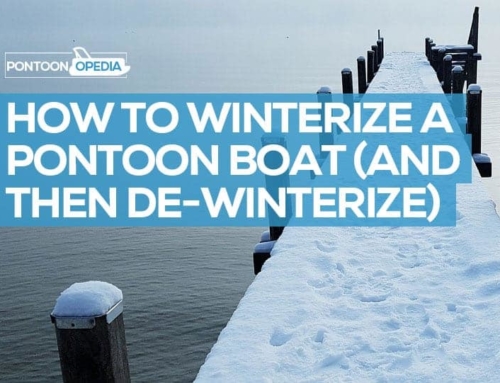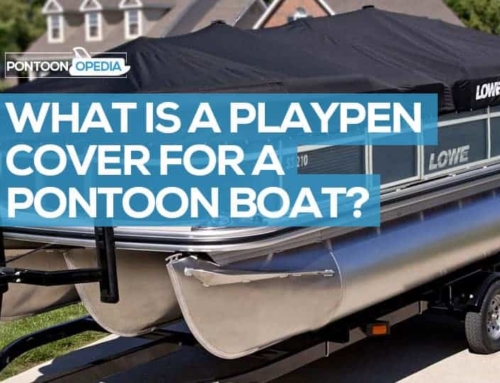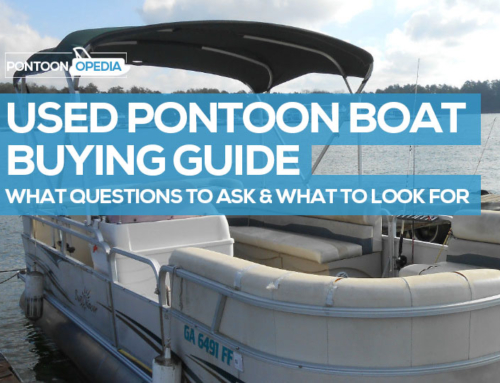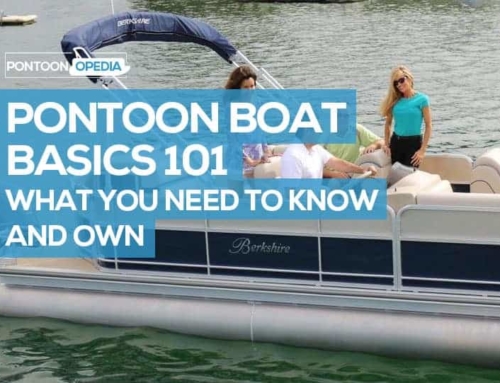The value of your pontoon boat, and how much you can re-sell it for will depend on so many different factors, including the brand, model, size, condition, and economy. Ultimately though, it’s only as valuable as the price someone is prepared to pay.
From my own research, it’s clear that pontoon boats will lose their resale value pretty rapidly over the first couple of years of ownership.
Think of it like a car.
If you buy a car from brand new from a dealer, then as soon as you drive it away, you’ve lost money due to the depreciation value.
But does that really matter when in most cases, you are buying a pontoon purely for the leisure and fun that it’s going to bring to your life?
If you are interested in depreciation values, keep reading on where I attempt to make sense of what can be quite a hard number to calculate.
How a Business Would Calculate Pontoon Boat Depreciation Value
I am not an accountant, but I do run my own business so know that assets will depreciate over time. The way that an accountant would calculate your pontoon boat’s depreciation value will depend on a range of factors, and there are three different methods in doing so.
I’ve taken inspiration from one of those methods, which is the one I understand best as is known as “straight line depreciation”.
This calculation method is only really suitable for a business that owns pontoon boats, as it will let you list your boats as an asset in your accounting reports.
I won’t go into the specifics of how exactly accountants work out depreciation, as that’s not my expertise by any stretch. What I will do instead is give you a very simplistic overview of how you can calculate how much a pontoon will depreciate.
Here are those elements, which should provide you some guidance on how to do it yourself. This are the aspects you will need to know:
- How much did the pontoon boat cost when you bought it?
- How many years of use do you believe you will have from it?
- How much do you think you will sell it for at the end of use?
Based on that, let’s throw some real numbers into the mix using a theoretical example.
You bought the pontoon boat for $40,000 and your business believes that it will be used for 10 years before selling it on again. At the end of that period, you believe that you will sell the pontoon for $10,000 after 10 years.
What you then do is subtract the pontoon’s worth at the end of its useful life, from the cost that you initially paid for it.
In this hypothetical example that would be; $40,000 minus $10,000 to give you $30,000 which is also known as the depreciable base value.
You then need to divide the depreciable base by the useful life of the pontoon to calculate the annual depreciation value.
So again, with our hypothetical example you would; $30,000 divided by 10 years, which gives you $3,000 worth of depreciation value each year.
But, let’s have a reality check.
You probably aren’t buying a business asset here, you’re buying a boat that you can mess about on the water with.
So Give Me Some Real-Life Examples
The type of pontoon boat depreciation calculation shown above doesn’t really help private boat owners or potential buyers who don’t know how much they will be selling the boat for in the future.
So, what can you do?
What I have done is monitor the private sale listings of pontoon boats from the last 12 months.
I’ve been looking at popular pontoon boat websites which sell second-hand and used models and tracked those values against the initial sale cost listed on the manufacturer websites.
What I have found is that if you decide to buy an average pontoon boat which is listed at $30,000 as new, then you are going to lose around $4,000 to $5,000 the minute you take ownership of it.
Each subsequent year of ownership across the 3-year period will most likely see you lose around $1,500 annually on the original sale cost from brand new.
Once you get over the 3-year initial hump, the depreciation actually starts to slow down.
From year 4 onwards, the value of your pontoon boat should then drop between $400 to $500 annually until it reaches the grand old age of 12 years old.
Once they hit this magic age, the depreciation value of most pontoon boats will then hold relatively stable until they naturally age off.
Even really old pontoon boats can be worth $1,500 dollars as long as it’s in good enough shape to be restored and updated.
What Do Other People Say?
I don’t suggest that you take my numbers as gospel; as I said there are so many factors at play here when considering how fast pontoon boats depreciate.
What I decided to do was canvass opinions on some popular boat forums to see what other boat owners are saying about pontoon depreciation values. Here are some highlights:
Let’s assume that boat prices stay the same, with no variation due to inflation or exchange rates, then you can expect to see the following depreciation rates:
- Year 1: 20% (maybe just over)
- Year 2: Another 5% to 10%
- Year 3: Another 5% to 7%
- And then about 5% year on year
Of course, this numbers are very arbitrary, and will depend on aspects such as:
- Pontoon boat desirability
- Condition
- Fuel type and consumption
- Brand
- Add-ons and modifications
- History of use
And in very rare cases, you might even find a pontoon boat that actually sells for more than it was originally purchased for.
Conclusion
I firmly believe that whilst you might want to consider how much your pontoon boat will depreciate in value, is it really a main consideration?
Unless you are running a business which uses pontoons, the main reason you are buying one is so that you can have fun and leisure time out on the lakes.
If the depreciation and re-sale value of your pontoon is that important, talk to some of the larger sellers and get their own industry insight.
Otherwise, just buy a pontoon, appreciate it for what it is – fun! And get out there and start using it. I promise you that once you own a pontoon boat, you will never think about how much it cost in the first place, as that will just become a secondary consideration over the enjoyment you will get from it.






